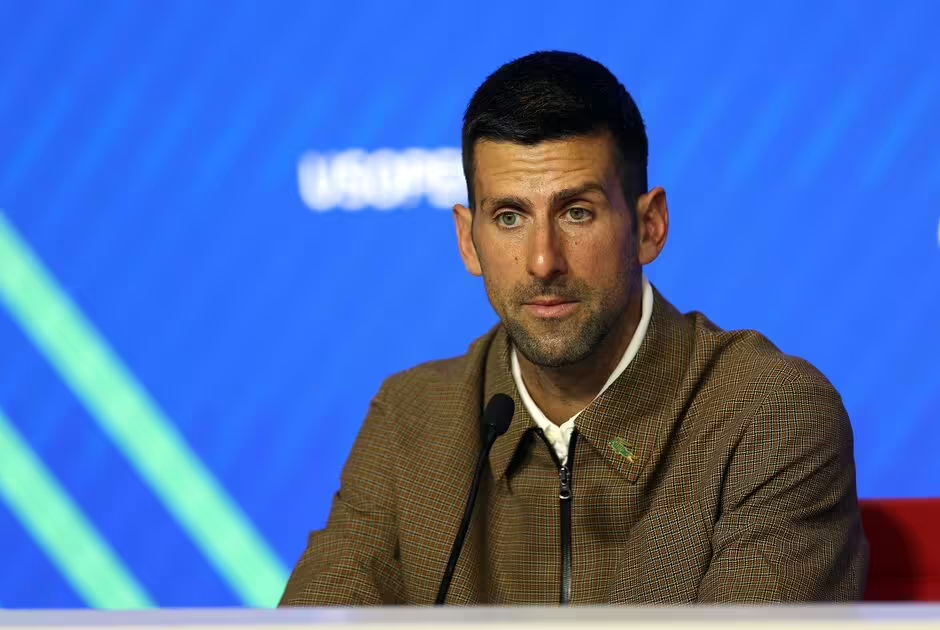
Novak Djokovic’s Evolving Schedule: Balancing Longevity and Legacy
Novak Djokovic, a name synonymous with tennis excellence, has long been a dominant force on the ATP tour. Yet, in recent years, he has opted for a significantly reduced schedule, a move that has become increasingly common among elite athletes aiming for longevity. This year, Djokovic’s decision not to participate in the ATP 250 tournament in Belgrade, a hometown event, underscores his strategic approach to managing his career. Here’s a closer look at why Djokovic is recalibrating his schedule and what it means for his future in tennis.
A Strategic Reduction in Schedule
Throughout his career, Djokovic has demonstrated an intuitive understanding of what it takes to maintain peak performance. Unlike some of his peers, he was among the first to embrace a reduced schedule, recognizing early on that playing fewer tournaments could contribute to a longer career. This strategy has served him well, especially as he’s approached the later stages of his career. His decision not to participate in every tournament on the calendar reflects a broader trend among top players who are now following his lead in prioritizing longevity over sheer volume of competition.
Despite his decision to skip the ATP 250 tournament in Belgrade this year, Djokovic’s commitment to his home country remains strong. Serbia will host the event in November, but Djokovic has confirmed that he will not be in attendance. This move highlights his shift towards a more selective tournament schedule, focusing on events that align with his personal and professional priorities.
The Importance of Home Events
Djokovic’s absence from the Belgrade Open is notable given his history of supporting home tournaments. Serbia has not always had a prominent tournament, making Djokovic’s participation in local events a significant gesture of support and patriotism. However, with the introduction of the Belgrade Open, Djokovic’s choice to opt out this year is a clear indication of his evolving priorities.
Despite this, Djokovic is still making an effort to represent Serbia on the global stage. He is currently participating in the Davis Cup, which offers him a platform to compete at home and connect with his Serbian fans. Djokovic’s sentiments reflect the emotional significance of playing in front of a home crowd. As he puts it, “Weeks like these represent another motivation, they inspire me to keep going, they awake those butterflies in my belly.” This indicates that while he may be selective about his tournaments, the emotional and patriotic aspects of representing his country still play a crucial role in his career.
A Focused Approach to Scheduling
Djokovic’s approach to scheduling has evolved from having a meticulously planned calendar to a more spontaneous one. In his earlier years, he was known for having his schedule mapped out months in advance. However, as he has grown older, he has adopted a more flexible approach, prioritizing physical, emotional, and mental rest over rigid planning.
“I am not playing, that won’t change. After that, I am going to see what I am going to do,” Djokovic explains. This shift highlights his focus on well-being and strategic decision-making. By not overloading his schedule, Djokovic aims to conserve his energy and maintain his competitive edge. This approach not only reflects his desire to extend his career but also his evolving perspective on what matters most in his professional journey.
Grand Slams and National Pride
For Djokovic, the Grand Slams represent the pinnacle of tennis achievement. Having already won numerous titles across the major tournaments, he views them as crucial to enhancing his legacy. The pursuit of Grand Slam victories continues to drive him, as these tournaments are seen as the ultimate markers of success in the sport.
Additionally, representing his national team in the Davis Cup is a significant source of pride and motivation for Djokovic. The emotional connection he feels when playing for Serbia is evident in his statements and actions. His focus on Grand Slams and national team competitions underscores his dedication to both personal and patriotic goals.
The Future of Djokovic’s Career
As Djokovic navigates the latter stages of his career, his decisions reflect a balance between preserving his physical health and pursuing meaningful achievements. While he will not be competing in the Belgrade Open this year, his participation in the Davis Cup and planned appearances at other key events demonstrate his ongoing commitment to the sport.
Djokovic’s career trajectory offers valuable insights into how top athletes manage their schedules and prioritize their goals. His approach serves as a model for balancing competitive drive with the practical considerations of longevity. As he continues to navigate this phase of his career, Djokovic remains a formidable presence in tennis, with his legacy and contributions to the sport firmly established.
In summary, Novak Djokovic’s evolving schedule highlights his strategic approach to managing a successful career while prioritizing health and well-being. By selectively choosing his tournaments and focusing on key events like the Grand Slams and national team competitions, Djokovic demonstrates a thoughtful and calculated approach to sustaining his impact on the sport. His decisions reflect a deep understanding of what it takes to remain at the top level while preparing for the future of his tennis journey.
Leave a Reply